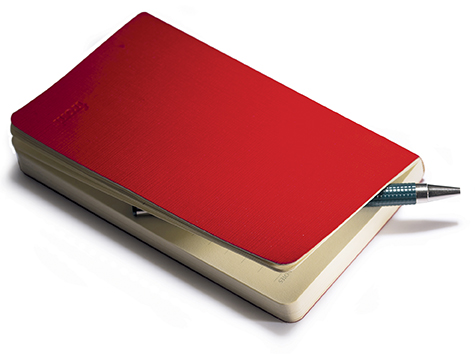Gratitude Journaling
Jacqui Moraal of Ilderton, ON, was casting around for topic ideas for a Thanksgiving talk she had agreed to give at a women’s church group when, during the course of her research, she stumbled onto studies on gratitude journaling, which has been linked to benefits ranging from increases in optimism, happiness, and life satisfaction to a boost in health behaviours such as exercise. (There are various versions of this form of journaling, the most basic of which involves jotting down three things or events that you’re thankful for at the end of the day—from the scent of a favourite tea to a cuddle with a grandchild or even simply gratitude for having a roof over your head. “It seemed like such a small thing to have such a powerful effect,” Moraal says. “I was curious about why that would happen, so I tried it.”
“At first, it was difficult to find three things,” she recalls. Still, she persisted, and in time, began noticing a shift in her mental state. A self-described worrywart, Moraal once had a tendency to replay previous conversations, ruminating on what she should have said in a particular situation, and, “at night, I’d wake up and stress about stuff.”
Two years after embarking on her experiment, which she has since adopted as a permanent habit, she says, “I tend to notice more positive than negative stuff.” So much so, in fact, that she often finds it hard to limit her list to three items.
To describe the impact gratitude journaling has had on the way she looks at the world, Moraal uses the following analogy: “It’s like having the laundry piled up around you while you’re searching for the mate to a red sock—it’s not that you don’t see the rest of the laundry, but it’s not what you’re focused on,” she explains. “It didn’t happen immediately, but it’s changed my whole mindset.”

Photo: iStock/MC Yeung.
Now, rather than mentally replaying a conversation with a difficult person to figure out if saying something different might have changed the outcome, “after about half a minute of that, I say to myself, It’s probably about him, and let it drop,” Moraal says. “I feel that I have more energy than I did two years ago. Do I sleep better? I sure do—and if I do wake up, I can fall back to sleep.” (This benefit is backed up by a study in which participants who did gratitude journaling slept an average of 30 minutes longer nightly and awoke feeling more refreshed than people who didn’t follow the practice.)
“My life isn’t better, my house isn’t better, my family probably isn’t any different, but my attitude and my outlook are better,” Moraal says. “I feel more joyful and more attentive to the present, and I look forward to things more.” In short, what started out as a research project “is probably the best thing I’ve ever done,” she says. “I highly recommend it.”


